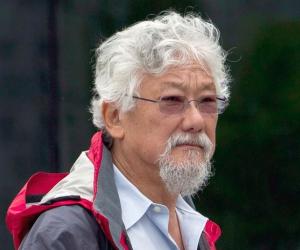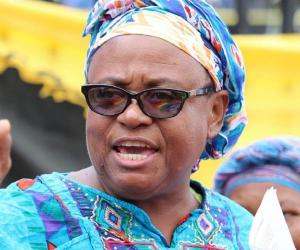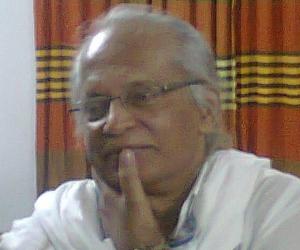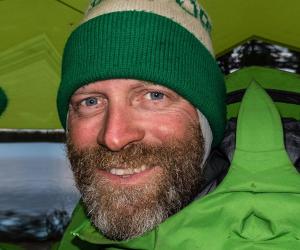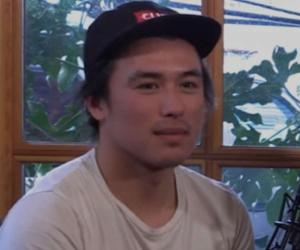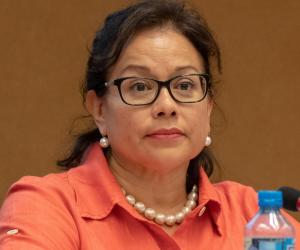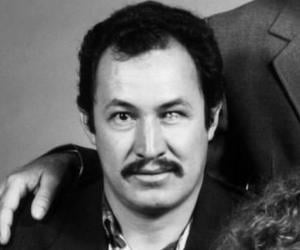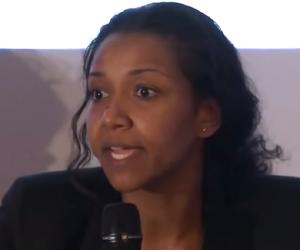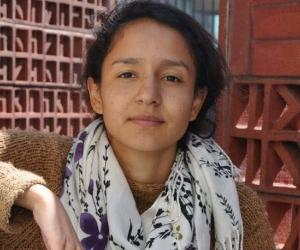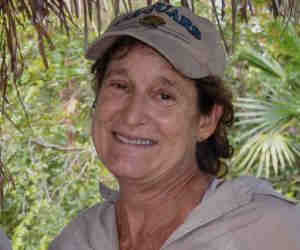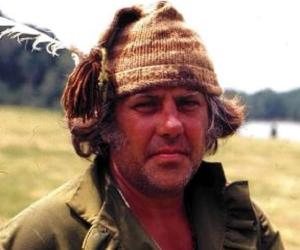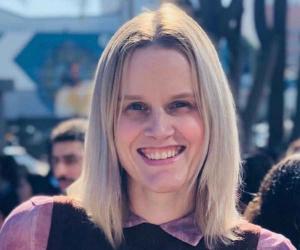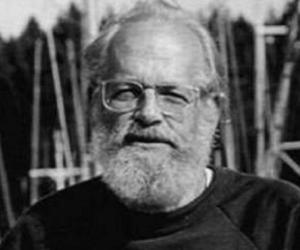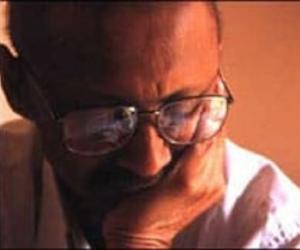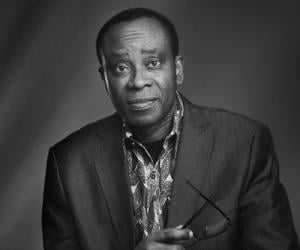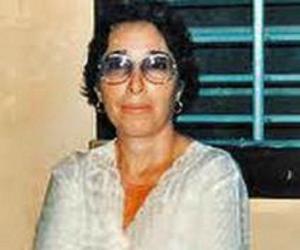Quick Facts
Canadian Celebrities Born In March
Also Known As: David Takayoshi Suzuki
Age: 89 Years, 89 Year Old Males
Family:
Spouse/Ex-: Setsuko Joane Sunahara, Tara Elizabeth Cullis
father: Kaoru Carr Suzuki
mother: Setsu Nakamura
siblings: Dawn, Geraldine, Marcia
children: Sarika Cullis-Suzuki, Severn Cullis-Suzuki
Born Country: Canada
Zoologists Environmental Activists
Height: 5'4" (163 cm), 5'4" Males
Ancestry: Japanese Canadian
City: Vancouver, Canada
Founder/Co-Founder: David Suzuki Foundation., Quirks and Quarks.
More Facts
education: University Of Chicago
awards: 2006 – Bradford Washburn Award
2009 – Right Livelihood Award
Childhood & Early Life
David Suzuki was one of the twins born to Setsu Nakamaru and Kaoru Carr Suzuki in Vancouver, Canada. Apart from his twin sister, Marcia, he had two other siblings, Geraldine and Dawn.
In 1942, during the Second World War, the family was interned in a camp at Slocan in the British Columbian Interior, and his father was sent to work in a labor camp in Solsqua.
When World War ended in 1945, his family shifted to Islington, Learnington where he attended Mill Street Elementary School and Learington Secondary School. Here, his interest in the environmental studies was stimulated by his father.
The family then shifted to London, Ontario and he began to attend London Central Secondary School. His popularity is attested by the fact that he became the Students’ Council President by a massive majority.
He graduated in Biology in 1958, from Amherst College in Massachusetts where he became fascinated with the study of genetics, and completed his Ph.D. in Zoology from the University of Chicago, three years later.
Career
He became a professor in the Genetics Department at the University of British Colombia in 1963. He devoted his career as an academician to genetic research using fruit flies as the model.
He began his television career with the children’s program, Suzuki on Science, in 1970. The initial episodes of the series echoed the host’s specialty of genetics but, the later ones encompassed other areas.
In 1974, he hosted on CBC AM radio, a programe called ‘Quirks & Quarks’. The show had the host interviewing scientists and a panel of scientists replying to listener’s questions.
From 1975 till the end of the decade, he hosted a weekly television program called ‘Science Magazine’, which targeted the adult audience. There were interviews, science updates and segments like ‘How Things Work’.
Since 1979, he has been hosting ‘The Nature of Things’, a television series on CBC. The program intends to create awareness about the threats faced by wildlife, and benefits of renewable energy.
He produced the documentary, ‘Yellowstone to Yukon: The Wildlands Project’, in 1997, for the Discovery Channel, based on conservationist Dave Foreman’s project about creating buffer zones around large wild reserves to preserve biological diversity.
In 1990, his book, ‘Genethics: The Clash between the New Genetics and Human Values’ was published to enlighten and educate a lay person on modern genetic technology and the many ethical issues involved.
He co-authored with Anita Gordon, ‘It’s a Matter of Survival’, which was published in 1991. The book makes a prediction of the condition of human society and environment 50 years on and suggests ways improve it.
‘The Sacred Balance’, written by him in 2007, stresses the dependence of human beings upon the planet’s natural resources. A series of documentary films were also made based on the book.
Major Works
David Suzuki’s 1985 serial, ‘A planet for the Taking’, called for a major perceptual shift towards nature. Each of the episodes of this acclaimed series was watched by an estimated 1.8 million people per episodes.
‘David Suzuki: The Autobiography’, published in 2006, traces his life from childhood to his current celebrity status. It was No. 1 on Maclean’s list of non-fiction bestsellers in Canada for four weeks.
Awards & Achievements
David Suzuki was awarded the ‘Order of Canada’ in 1976. It is conferred in recognition to the highest degree of merit, talent and service, or an exceptional contribution to Canada and humanity.
In 1995, he was honored with the ‘Order of British Columbia’, a civilian honor of merit in the province of British Columbia intended to honor its residents for conspicuous achievements in any field.
He was awarded the UNESCO’s ‘Kalinga Prize’ for Popularization of Science in 1986. The award is given for exceptional skill in presenting scientific ideas to lay people.
In 2004, he was voted as the ‘Fifth Greatest Canadian’, from a list of ten finalists, by viewers in the television series ‘The Greatest Canadian’ by the ‘Canadian Broadcasting Corporation’.
‘Global Exchange’, an advocacy group based in San Francisco, awarded him the ‘International Human Rights Award’ in 2007, as part of its mission to promote human rights and environmental justice.
In 2009, he was awarded the ‘Honorary Right Livelihood Award’, also referred to as the ‘Alternative Nobel Prize’ for working on practical and exemplary solutions to the most urgent challenges facing the world.
Personal Life & Legacy
David Suzuki has five children, three of them from his first wife Setsuko Joane Sunahara, his high school sweetheart and two from his present wife Tara Elizabeth Cullis, whom he married in 1972.
‘The David Suzuki Foundation’, headquartered in Vancouver, Canada is a nonprofit organization founded by him in 1990, to work for balancing human needs with the earth’s ability to sustain life.
Facts About David Suzuki
In addition to his scientific achievements, Suzuki is also an accomplished author, having written books on various environmental issues and solutions.
Suzuki is a talented public speaker and has given numerous lectures and presentations around the world to raise awareness about climate change and the importance of protecting our planet.
Despite facing criticism and controversy at times, Suzuki remains a dedicated advocate for the environment and continues to inspire others to take action towards a more sustainable future.
In 1990, Suzuki co-founded the David Suzuki Foundation, a non-profit organization dedicated to promoting environmental protection and finding solutions to pressing global issues.


